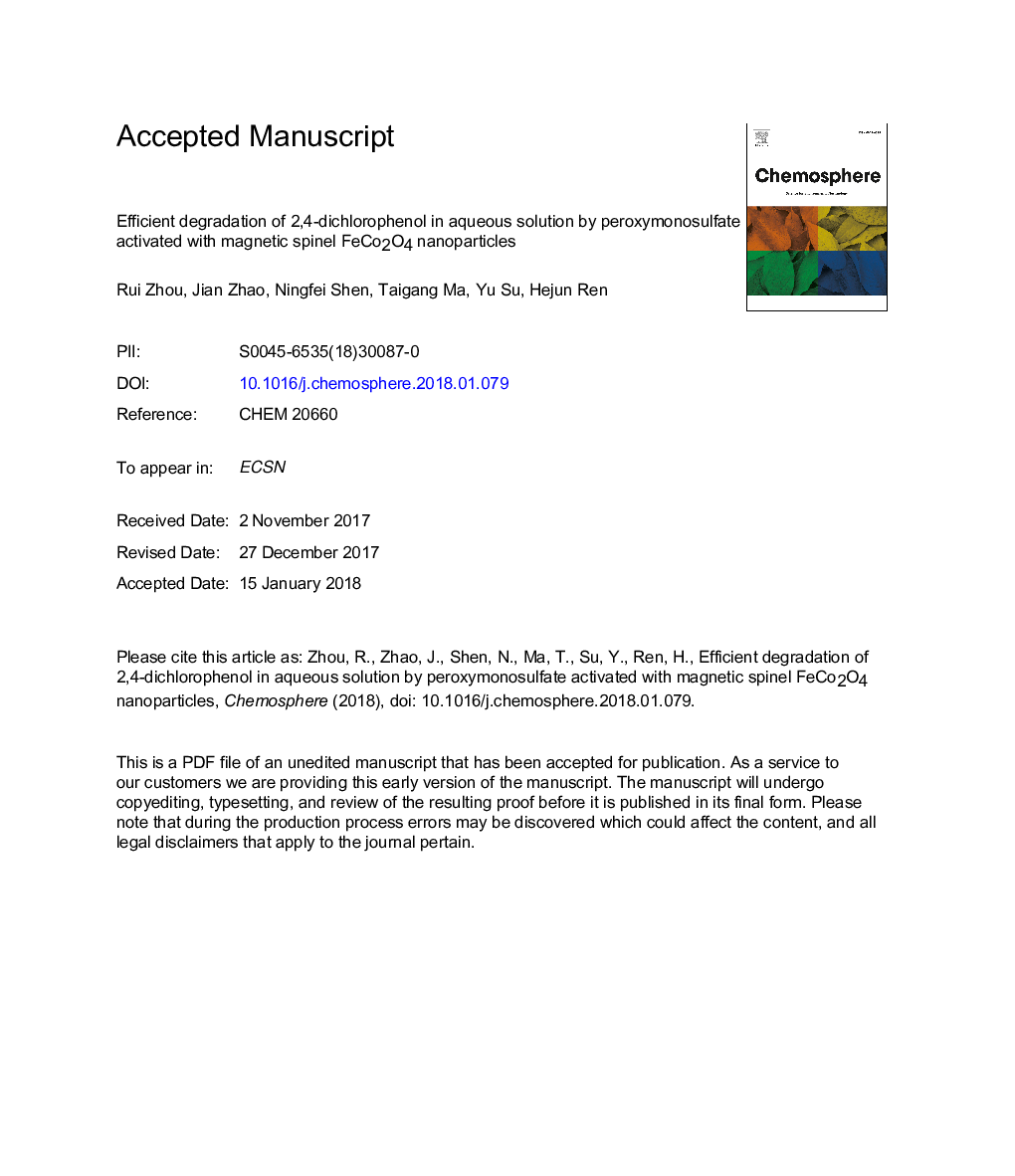| Article ID | Journal | Published Year | Pages | File Type |
|---|---|---|---|---|
| 8852166 | Chemosphere | 2018 | 39 Pages |
Abstract
Magnetic spinel FeCo2O4 nanoparticles (NPs) were synthesized and proposed as a catalyst of peroxymonosulfate (PMS) for the degradation of 2,4-dichlorophenol (2,4-DCP). The catalyst was characterized by XRD, TEM, XPS, nitrogen adsorption-desorption isotherms, and magnetization curve. In addition, the effects of parameters, such as initial pH, PMS dosage, FeCo2O4 addition, and initial concentration of 2,4-DCP were studied. The results showed that FeCo2O4 NPs exhibit good properties for the degradation and mineralization of 2,4-DCP, achieving 95.8% and 44.7% removal of 2,4-DCP and TOC, respectively, within 90â¯min under reaction conditions of 4â¯mM PMS, 0.06â¯gâ¯Lâ1 FeCo2O4, 100â¯mgâ¯Lâ1 2,4-DCP, pHâ¯=â¯7.0, and Tâ¯=â¯30â¯Â°C. Furthermore, SO4â and HO were main radical species in the reaction system was explored. The 2,4-DCP degradation efficiency could reach 91.8% even after FeCo2O4 NPs were used for the fifth run. Moreover, the degradation efficiencies of metronidazole (MNZ), methylene blue (MB), and rhodamine B (RhB) could reach 74.8%, 86.7%, and 96.1% under the same reaction conditions, respectively. Results revealed that the FeCo2O4/PMS system shows potential for degrading contaminants in the environment.
Related Topics
Life Sciences
Environmental Science
Environmental Chemistry
Authors
Rui Zhou, Jian Zhao, Ningfei Shen, Taigang Ma, Yu Su, Hejun Ren,
